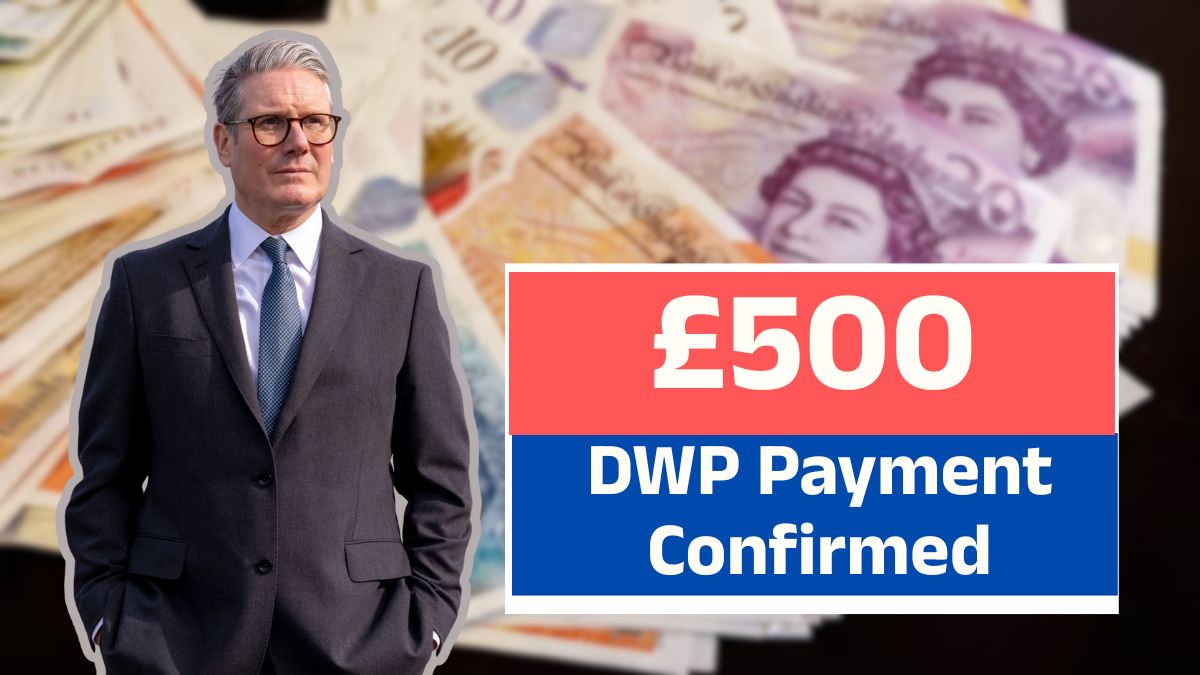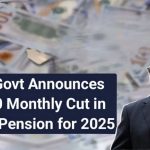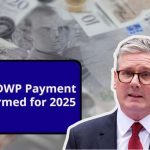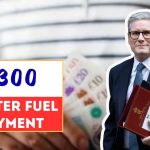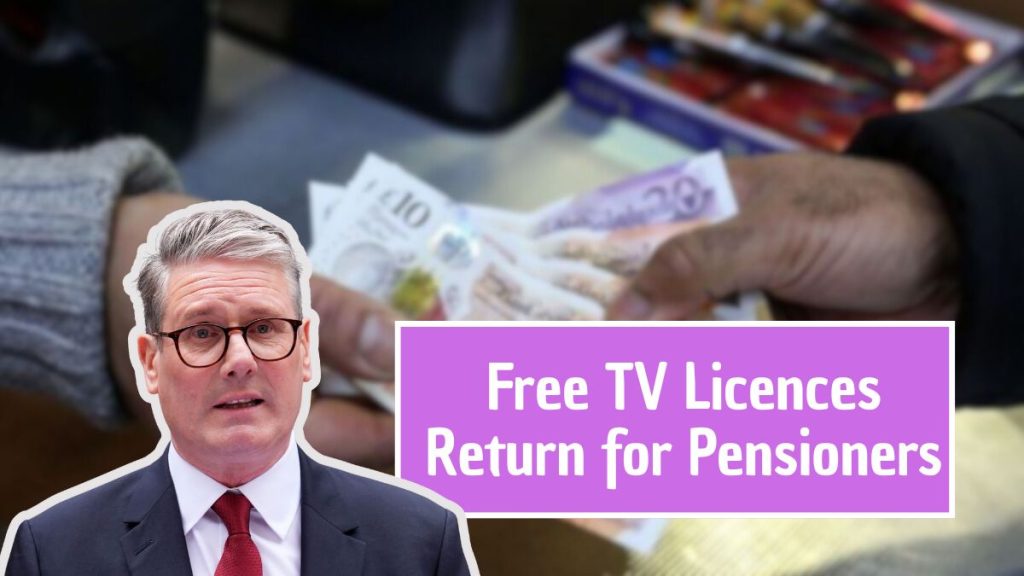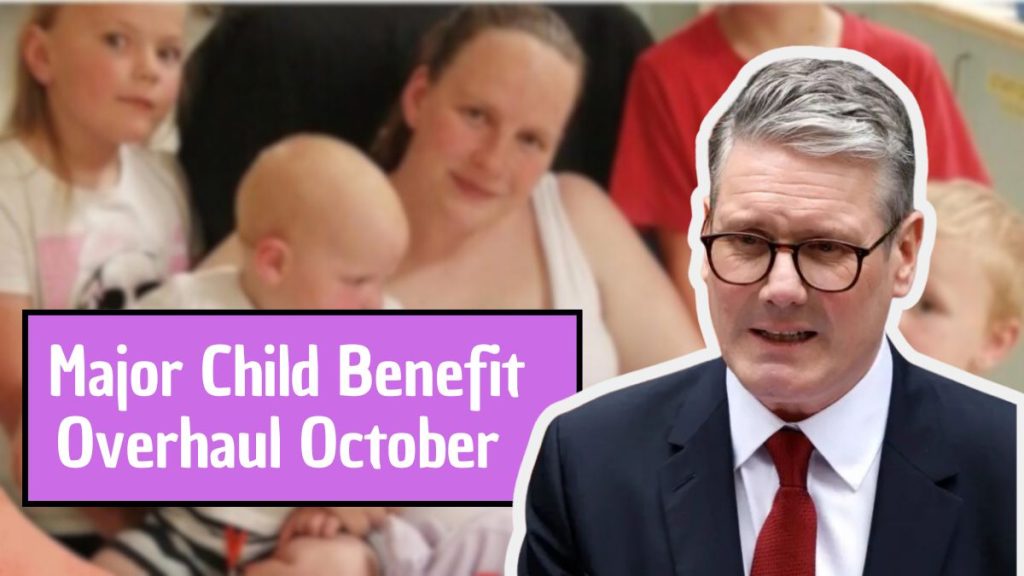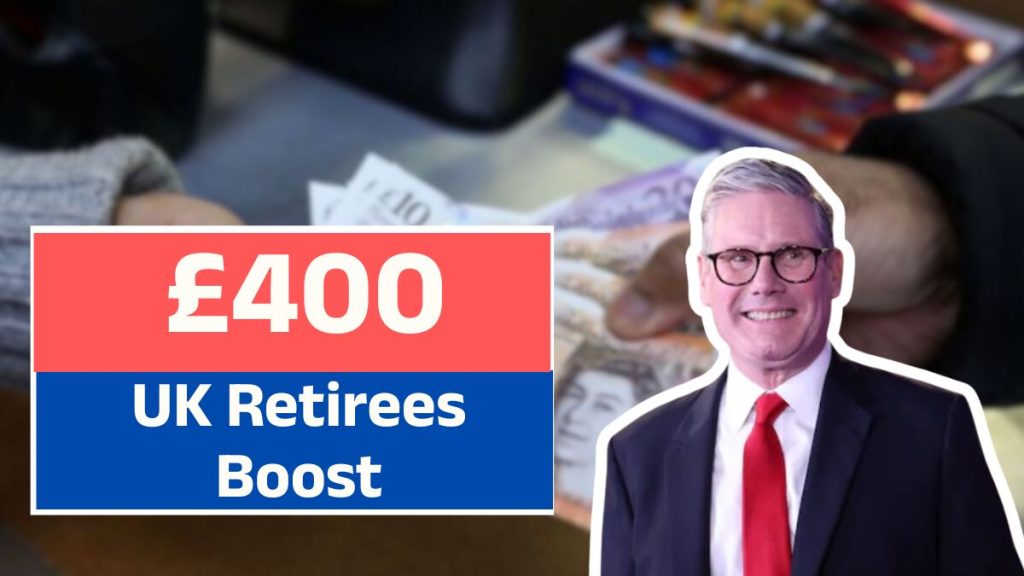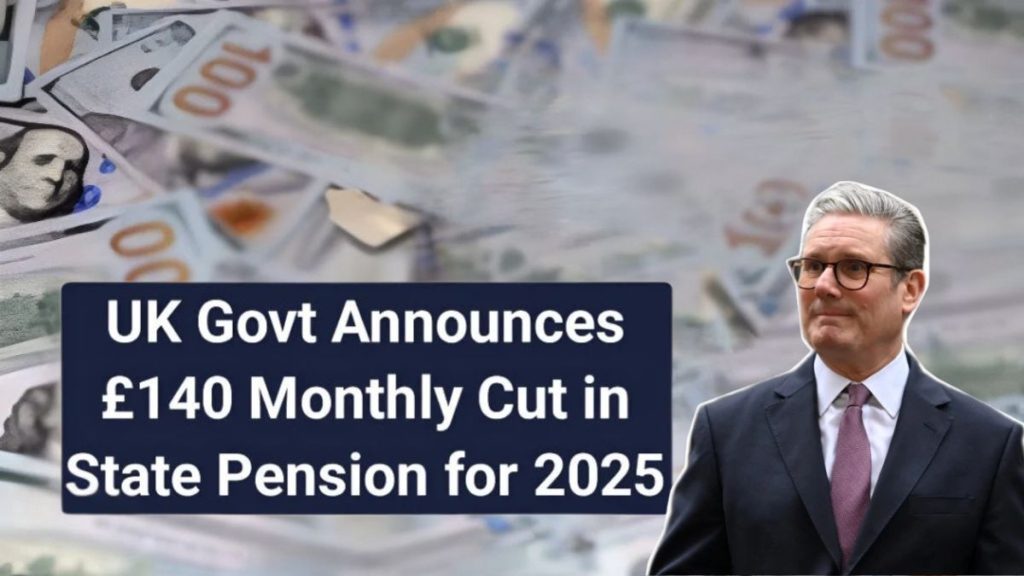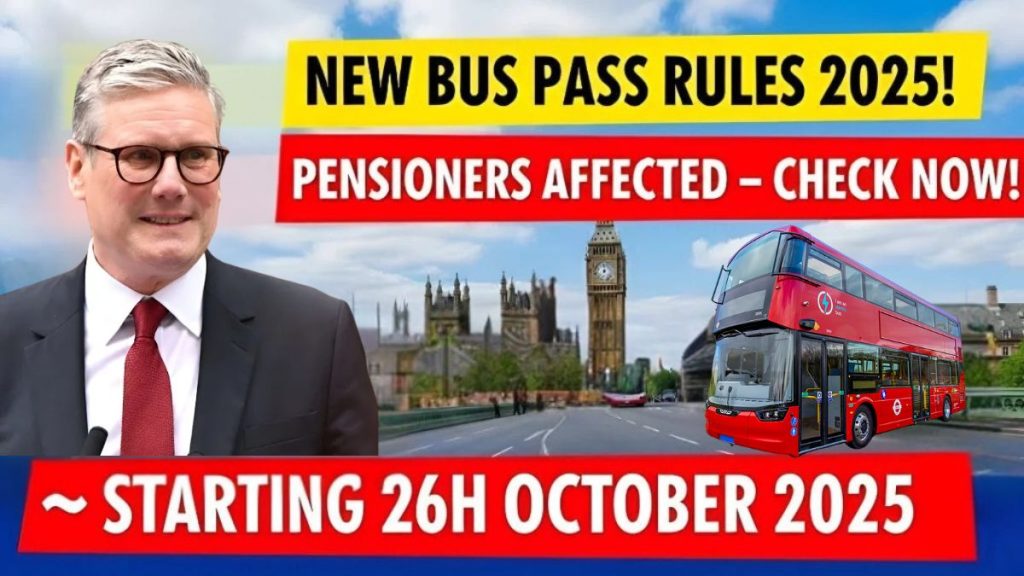The Department for Work and Pensions (DWP) has confirmed details of the £300 Winter Fuel Payment 2025, offering crucial financial relief to millions of pensioners and vulnerable individuals across the United Kingdom.
This annual benefit is one of the government’s most relied-upon winter support schemes. Distributed between November 2025 and January 2026, the Winter Fuel Payment helps older citizens afford rising heating and energy costs as temperatures drop nationwide.
Amid ongoing inflation and persistently high utility bills, the 2025 scheme continues to serve as a lifeline for pensioners, reinforcing the government’s promise to support those most affected by the cost-of-living crisis.
Overview of the DWP £300 Winter Fuel Payment 2025
The Winter Fuel Payment (WFP) is a tax-free annual benefit issued by the DWP to eligible pensioners to help cover heating expenses during the coldest months of the year.
The payment is sent automatically to most pensioners, with funds typically arriving between November and January, depending on regional processing schedules.
This year’s instalment includes an additional £300 “Pensioner Cost of Living” top-up, extending the government’s financial support package for older citizens amid sustained energy market challenges.
Key Details at a Glance
| Particular | Details |
|---|---|
| Payment Name | Winter Fuel Payment 2025 / Pensioner Cost of Living Payment |
| Department | Department for Work and Pensions (DWP) |
| Payment Amount | £100–£300 basic WFP + £300 top-up (maximum £600) |
| Eligibility Age | Born before 25 September 1958 (aged 66 or older) |
| Payment Period | November 2025 – January 2026 |
| Payment Method | Direct deposit to pension or benefit-linked bank accounts |
| Tax Status | Non-taxable and non-repayable |
| Regions Covered | England, Wales, Scotland, and Northern Ireland (via DfC NI) |
Purpose of the 2025 Winter Fuel Payment
The DWP Winter Fuel Payment 2025 aims to protect older people from the financial impact of cold weather and energy price fluctuations.
With electricity and gas prices still above pre-pandemic levels, pensioners — especially those on fixed incomes — face increasing pressure to keep their homes warm through the winter.
This payment ensures they can cover essential heating and energy bills without cutting back on other necessities such as food or healthcare.
The additional £300 top-up continues from previous years, confirming the government’s ongoing commitment to tackling fuel poverty among older citizens.
How Much Will Pensioners Receive in 2025–2026?
The amount each pensioner receives depends on age, living situation, and benefit status during the qualifying week — expected to be 16–22 September 2025.
Below is the DWP’s indicative payout structure:
| Household Circumstances | Winter Fuel Payment | Total (with £300 Top-Up) |
|---|---|---|
| Living alone (born before 25 Sept 1944) | £300 | £600 |
| Living alone (born on or after 25 Sept 1944) | £200 | £500 |
| Living with another eligible pensioner (both over State Pension age) | £200 each | £400–£600 combined |
| Living with someone under State Pension age but on qualifying benefits | £300 | £600 |
| Living in a care home and receiving Pension Credit | £150 | £450 |
| Living in a care home without qualifying benefits | Not eligible | — |
This means the highest payout possible remains £600, mirroring last year’s enhanced winter support.
Eligibility Criteria for the Winter Fuel Payment
To qualify for the Winter Fuel Payment 2025, claimants must meet both age and residency requirements as set by the DWP.
Age Requirement
You must have been born before 25 September 1958, meaning you’ll be aged 66 or above during the 2025–26 winter season.
Residency Requirement
You must be ordinarily resident in the UK during the qualifying week (expected 16–22 September 2025).
Some exceptions apply for UK nationals living in approved EEA countries or Switzerland, provided they meet additional criteria.
Automatic Eligibility via DWP Benefits
If you already receive certain state benefits, the Winter Fuel Payment will be issued automatically. Qualifying benefits include:
- State Pension (basic or new)
- Pension Credit
- Income Support
- Income-based Jobseeker’s Allowance (JSA)
- Income-related Employment and Support Allowance (ESA)
- Universal Credit (for pension-age claimants)
Those not on any of these benefits may still qualify but will need to submit a claim form to the DWP.
How and When Payments Will Be Made
Payments are scheduled to begin in November 2025, with the majority completed by 31 December 2025.
Funds will appear in bank accounts as a separate deposit labelled:
“DWP Winter Fuel” or “Pensioner Cost of Living Payment.”
Those living in Northern Ireland will receive payments via the Department for Communities (DfC) under identical terms and timelines.
Application Process for Non-Automatic Claimants
Most pensioners do not need to apply for the Winter Fuel Payment — it’s processed automatically if you’re already receiving DWP-administered benefits.
However, you must apply manually if:
- You live abroad in certain European countries and have never received the payment before, or
- You don’t currently claim a qualifying benefit (such as the State Pension).
Applications typically open in late August 2025. You can apply:
- By post, using the official DWP Winter Fuel Payment claim form.
- By phone, through the DWP helpline.
Manual applications may take longer, with payments often issued in January 2026.
The £300 Cost of Living Top-Up Explained
The £300 top-up remains part of the government’s broader Pensioner Cost of Living Support package.
Introduced in 2022 during the energy price surge, this additional payment acknowledges that heating costs remain high and inflation continues to affect older citizens.
Yearly Payment History:
| Year | Standard WFP | Top-Up Amount | Maximum Combined Total |
|---|---|---|---|
| 2022–23 | £300 | £300 | £600 |
| 2023–24 | £300 | £300 | £600 |
| 2024–25 | £300 | £300 | £600 |
| 2025–26 | £300 | £300 | £600 |
The consistency of this top-up underscores the government’s recognition that energy affordability remains a national concern for pensioners.
Expected Payment Timetable for 2025–26
| Month | Payment Activity | Beneficiary Group |
|---|---|---|
| September 2025 | Eligibility review (qualifying week) | All pension-age residents |
| October 2025 | Notification letters dispatched | Automatic recipients |
| November 2025 | Early rollout for Pension Credit recipients | Phase 1 |
| December 2025 | Main Winter Fuel Payment distribution | All pensioners |
| January 2026 | Final phase for overseas and late claimants | Manual applicants |
Most recipients can expect their payment by Christmas 2025, while international claimants may see theirs in January.
How to Check or Report Missing Payments
If your payment hasn’t arrived by 31 January 2026, take these steps:
- Wait 10 working days after your regular pension date.
- Review your bank statement for an entry marked “DWP Winter Fuel.”
- Contact the Winter Fuel Payment Centre for assistance.
DWP representatives can verify eligibility, update your bank details, or resolve missing payment cases promptly.
Regional Handling and Devolved Administration
While the Winter Fuel Payment scheme is national, its administration differs slightly by region:
- England & Wales: Managed by DWP directly.
- Scotland: Coordinated by DWP with Social Security Scotland, alongside the Winter Heating Payment scheme.
- Northern Ireland: Administered through the Department for Communities (DfC NI) using identical eligibility rules.
All regions ensure parity in payment amounts and schedules, maintaining equal support across the UK.
Why the Winter Fuel Payment Remains Vital
Rising energy costs and persistent inflation mean that many older residents still face fuel poverty, even with existing support.
The Winter Fuel Payment serves multiple roles:
- Energy Security: Reduces the risk of cold-related illnesses and fatalities.
- Financial Stability: Prevents pensioners from choosing between heating and essentials.
- Economic Impact: Stimulates local economies by sustaining spending on household services and utilities.
Government officials have repeatedly emphasised that the WFP is not merely a financial aid scheme but a public health measure during extreme winter weather.
Link to Other DWP Support Schemes
The Winter Fuel Payment operates alongside several complementary benefits aimed at helping pensioners manage expenses:
- Pension Credit: Offers additional income support and automatic eligibility for other benefits.
- Cold Weather Payments: Triggered when average temperatures fall below zero for seven consecutive days (£25 per week).
- Warm Home Discount: Provides a £150 energy bill reduction for eligible households.
Together, these measures form a comprehensive winter safety net.
Official DWP Statement
A DWP spokesperson said:
“The Winter Fuel Payment continues to demonstrate the government’s commitment to protecting older citizens from the financial pressures of rising energy costs. This year’s £300 top-up ensures pensioners across the UK can stay warm and secure through the winter months.”
What Pensioners Should Do Next
Most pensioners don’t need to take any action — payments will arrive automatically. However, it’s wise to:
- Check your eligibility on the official GOV.UK website.
- Verify bank details linked to your pension or benefits.
- Apply early if you’re living abroad or not on qualifying benefits.
Staying proactive helps avoid delays and ensures payments are received on time.
(3) Five Frequently Asked Questions (FAQ)
1. When will the £300 Winter Fuel Payment 2025 be paid?
Payments will be made automatically between November 2025 and January 2026, with most arriving before Christmas.
2. Who is eligible for the Winter Fuel Payment?
Anyone born before 25 September 1958 and living in the UK during the qualifying week (16–22 September 2025) will generally qualify.
3. Do I need to apply for the payment?
Not usually. It’s automatic for those on State Pension or other qualifying benefits. Only those abroad or not receiving benefits need to apply.
4. How much will I receive?
Depending on your age and circumstances, payments range from £250 to £600, including the £300 top-up.
5. Will this payment affect my other benefits?
No. The Winter Fuel Payment is tax-free, non-repayable, and does not affect entitlement to other benefits.
